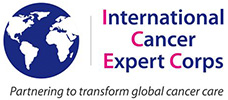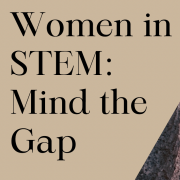Women in STEM: Mind the Gap. Watch the panel presentation delivered at the Sixty-Sixth Session of the Commission on the Status of Women March 18, 2022
Watch Now – Women in STEM: Mind the Gap
Full Program below
Women in STEM Mind the Gap 2022 2Women in STEM: Mind the Gap1
Presented at the CSW66 Forum
18 March 2022, 8:00-9:30am (EST, NY time), 13:00-14:30 (CET, Geneva)
Advancing gender equality and women’s empowerment is critical to achieving the Sustainable Development Goals (SDGs) of the United Nations since a large body of evidence now demonstrates the positive links between gender equality as a fundamental human right and women’s participation in STEM (Science, Technology, Mathematics, Engineering) which improves efficiency in many sectors.
In spite of this, gender imbalance persists worldwide in STEM and ways of bridging this gap need to be understood and implemented. Some key points that have been emphasised is that encouragement of girls should start with the involvement of family in setting the right environment for both sons and daughters as well as the great need for women role models, improved recognition (in images and media) and perception of women in these fields as well as the necessity for mentorship.
All avenues need to be exploited to minimise and bridge the gap if women are to contribute and profit equally from the potential of science and technology and participate meaningfully in a global knowledge society, to keep families out of poverty and provide educational benefits to the next generation.
STEM is necessary to fight diseases, fight and respond to the challenges of global health, environment and climate change. During the COVID-19 pandemic, ICT technologies have come into their own by allowing communication, education and collaboration both remotely and globally, not only giving voice to all but also actively participating in discussion such as this panel and allowing all perspectives to be heard and outlining challenges as well as proposing solutions which are effective locally. Showing clearly both the empowering role of information and communication technologies (ICT) but also the negative side of how it can be disempowering if you lack the know-how and the tools and infrastructure. Once again women have been much more affected and impacted.
Society would benefit on multiple levels if we had more women in STEM since they can not only improve the world’s economy but also give science a perspective that men do not have. Research shows that companies in the top 25th percentile for gender diversity on their executive teams were 21% more likely to experience above-average profits.
There are several reasons for the lack of women in STEM. Multiple sociocultural barriers prevent many high school girls from fully participating in STEM and ICT career tracks leading to careers. These barriers include limited exposure to female STEM role models; stereotypes around girls’ lack of STEM ability and interest; commonly held misperceptions about STEM fields being “unfeminine;” low STEM self-esteem (negative or neutral STEM identity); lack of knowledge and/or misunderstanding of STEM fields; and a disproportionate (and thus intimidating and/or unwelcoming) number of male students and educators in STEM and ICT classes. These barriers need to be addressed to encourage more women to enter into in STEM to address global challenges.
Objective: Our STEM panel will highlight the empowering role of information and communication technologies (ICT) and the importance of girls and women having the knowledge, tools and infrastructure they need to be successful in STEM careers. Society would benefit on multiple levels if we had more women in STEM to improve the world’s economy and their involvement gives science a diverse perspective that men do not have.
Panel Moderators: Afton Beutler-Reed (AHP &MLP) and Manjit Dosanjh (ICEC)
Rapporteur: Petya Georgieva (SEEIIST)
Afton Beutler-Reed is the International Vice President Mothers Legacy Project http://motherslegacy.org/ and Director – GEO program Global Education Opportunity Program. Since 2003, she has been a UN representative in New York and Geneva. Seeing the unique international and cultural environment in Geneva, Afton created and directs the Global Education Opportunity (GEO) program to bring students to attend UN meetings and international events; do research and contribute to global initiatives as well as participate in grassroots community projects
Petya Georgieva is a Communication Officer for South East European International Institute for Sustainable Technologies (SEEIIST) and has worked closely with Manjit for many years on ENLIGHT Highlights. She is a Digital Communications Content Creator, Website and data platform manager, Conference and workshop planning expert.
Panelists:
Katherine Coffman
Piramal Associate Professor of Business Administration
Harvard Business School
“Gender Gaps in Who Puts Themselves Forward – And How to Close Them”
Professor Coffman studies the sources of gender gaps in economically-important contexts. Her work focuses on the role of beliefs: how do stereotypes bias the beliefs that individuals hold about themselves (and others), and how do these biased beliefs shape decision-making? Through careful experimental design, she aims to isolate the forces that underlie important field phenomena, to quantify the impact of these forces on the efficiency and equity of outcomes, and to test a variety of potential policy interventions. Her work provides insights for leaders and policymakers looking to design more equitable, and efficient, processes for evaluating, recruiting, and promoting talent. She holds a PhD in economics from Harvard University and a BA in mathematics and economics from Williams College.
Manjit Dosanjh: is the Project Leader for STELLA (Smart Technologies to Extend Lives with Linear Accelerators), honorary CERN Staff, the particle physics laboratory in Geneva, Switzerland and Visiting Professor at the University of Oxford. She is also actively involved in helping non-profit science and technology education gender related organisations in Geneva and board of director for ICEC (International Cancer Expert Corps).
ICEC: The International Cancer Expert Corps (ICEC), an ECOSOC accredited NGO that strives to reduce mortality and improve the quality of life for people with cancer in low- and middle-income countries, as well as the indigenous and geographically underserved populations in upper-income countries and regions worldwide. The ICEC addresses this mission through a mentoring network of cancer professionals who work with local and regional in-country groups to develop and sustain expertise for better cancer care and by addressing technology and other barriers to access to care.
Eva Gousiou (CERN WIT), Electronics Engineer, Beams Department, CERN Eva is an electronics engineer and joined CERN in 2005, where she has held several positions as electronics developer, accelerator coordinator and facilitator in collaboration initiatives across departments. She is an open hardware enthusiast. Eva is part of the CERN WIT community since 2019 and is an active contributor to advocacy and networking activities.
egousiou@cern.ch | @evoulitas
WIT (Women in Technology)
CERN is the European Laboratory for Particle Physics in Geneva, Switzerland. It hosts 15’000 people, most of whom are physicists and engineers. The Women in Technology (WIT) at CERN is a grass-roots community with more than 500 members that started in 2016 with the aim of raising awareness on gender issues in the Organisation, connecting people interested in equal opportunities, providing mentoring and support and showcasing female role models in outreach activities, to inspire current and future generations. https://wit-hub.web.cern.ch
Laetitia van Haren: Cultural Anthropologist, President-founder of SAHFA – Smart Access to Health for All- through customised mobile communication technologies. Inventor-promotor of JamboMama! – smartly connecting mothers to health providers. Implementation and App development activities directed at women and rural communities in Tanzania and Congo.
Safe Motherhood: This is a fundamental women’s right since childbearing needs to be safer especially in remote areas far from modern medical facilities. Expectant mothers need to be empowered with the knowledge and means to manage her health and well-being during pregnancy. With this innovative smartphone application- a digital technology STEM solution, the process of birth can be improved and save the lives of mothers.
Rita Karl is the Senior Managing Senior Director of the STEM Media & Education Department at Twin Cities PBS and Executive Producer of the PBS award-winning SciGirls program, drawing on cutting-edge research on what engages girls in STEM. In 2019 and 2020, SciGirls was nominated for an Emmy Award for Best Educational Series and in 2021 won a Gracie Award for Best Family TV show – National. Ms. Karl previously served as Director of Education at the Challenger Center for Space Science Education, as Director of USAID’s award-winning Educational Technology in Schools in Egypt, and the NASA award-winning Texas Aerospace Scholars engineering education program for high school students, now in its 20th year.
About SciGirls: SciGirls has a robust presence on PBSKids.org with STEM-themed games and videos for children. Through its national outreach program, SciGirls CONNECT, SciGirls Trainers have trained 5,300 STEM educators in the U.S. in gender equitable and culturally responsive instructional strategies. Two new seasons SciGirls in the National Parks and SciGirls in Space are in production with funding from the National Science Foundation (NSF) and NASA. A new NSF grant, Black SciGirls is studying how educators who use anti-racist practices and Black women role models to engage more Black girls in STEM.
SciGirlsConnect.org | pbskids.org/SciGirls | pbslearningmedia.org/SciGirls
Facebook: @scigirlstv | Twitter: @scigirls | Instagram: @scigirls




